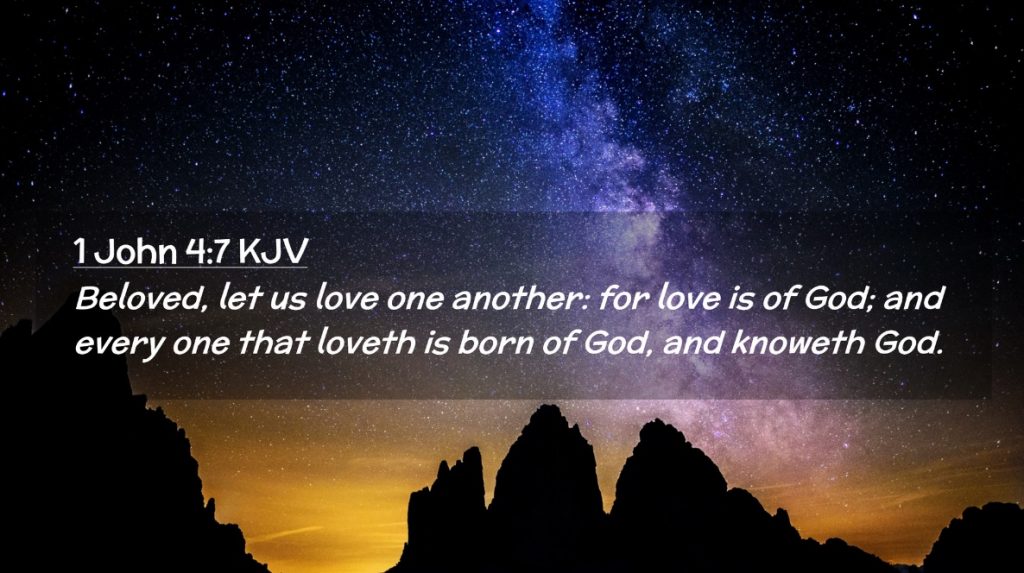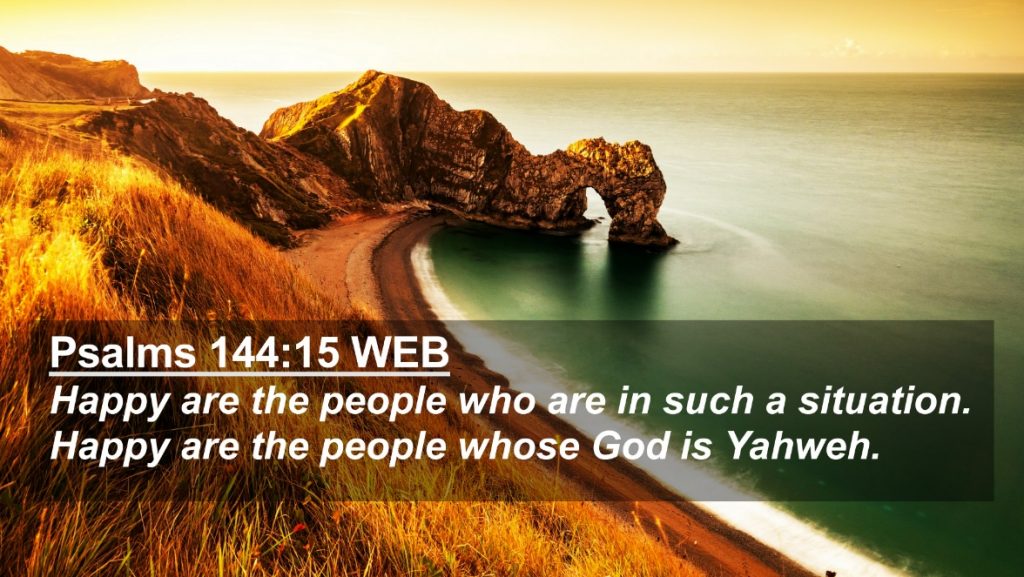“Go therefore and make disciples of all the nations…teaching them to observe all that I commanded you; and lo, I am with you always, even to the end of the age” (Matthew 28:19-20, NASB).
——————–
Contents:
1) Where Love Is in the Home (Bryan Gibson)
2) How To Be Happy (Ken Weliever)
——————–

-1-
Where Love Is in the Home
Bryan Gibson
Years ago, I remember hearing our brother in Christ, R.J. Stevens, along with some other men, singing a hymn entitled, “Where Love is in the Home.” It was written by Joe Parks, and the first line helps us to see what the song is all about: “Where love is in the home there’s happiness…” Not just happiness, but a whole lot of other good things, too, and this song details at least some of them.
The love of which this song speaks is not what the world typically defines as love; it’s the love rooted in the very character of God. 1 John 4:7-8 says, “Beloved, let us love one another, for love is of God; and everyone who loves is born of God and knows God. He who does not love does not know God, for God is love.” When both husband and wife have been born of God and know God, they will know love in its highest form. So, when this love is in the home, what else should we expect to find?
Where love is in the home, there’s strength, or stability, an element sadly missing in so many homes. Think about what is often said in traditional vows: “For richer or for poorer, in sickness and in health…” These vows anticipate times of adversity, right? Ecclesiastes 7:14 speaks of a “day of prosperity” and a “day of adversity,” and says “God has appointed the one as well as the other.” How does love, then, behave in times of adversity? “Love bears all things…endures all things…love never fails” (1 Cor. 13:7-8). Think of the strength, the stability you can have in the home when the two at the forefront are both saying this: “My love, it’s here for the duration; come what may, it’s not going anywhere.”
Where love is in the home, there’s peace. Understand, there can’t be peace with one another unless there is first peace with God. One is designed by God to be a byproduct of the other. But in terms of peace with one another, think of that great command in 1 Peter 1:22, “love one another fervently with a pure heart.” Pure love means it’s free from impurities or contaminants, some of which would greatly disturb peace in the home. Think of the peace you can have when love is free from selfishness, and free from other fruits of selfishness, like envy, and bitterness, and vengefulness. Take those impurities out and here’s what love look likes in the home: “love suffers long and is kind; love does not envy; love does not parade itself, is not puffed up; does not behave rudely, does not seek its own; is not provoked…” (1 Cor. 13:4-5). Where you have THAT love in the home, there is peace.
Where love is in the home, there’s joy. We rejoice in God’s great love for us, right, so why wouldn’t we rejoice when we experience that same kind of love from one another? And that joy is not just in receiving it, but in giving it. One of God’s greatest blessings to us is the capacity to love, to love fervently, deeply, to love as Christ loved us. Yes, to be on the receiving end is pretty awesome, but Jesus did say, “It is more blessed to give than to receive” (Acts 20:35).
Where love is in the home, there’s truth. Marriage ceremonies often quote the words of Jesus in Matthew 19:6: “What God has joined together, let not man separate.” Jesus, of course, was speaking about husband and wife. But God has also joined together truth and love, and we best not try to separate them, because neither can be what it ought to be without the other (2 John 1:1-6). Love “does not rejoice in iniquity, but rejoices in the truth” (1 Corinthians 13:6). What a beautiful thing indeed when you can see in a home an uncompromising stand for the truth.
Where love is in the home, it’s a beautiful thing.
— Via Plain Words from God’s Word, September 20, 2023
——————–

-2-
How To Be Happy
Ken Weliever
Today is “National I Want You To Be Happy Day.” At least the calendar of weird and obscure holidays says so.
I chuckled a bit when I read it. (Hmm, I guess it’s working). But I thought of Abraham Lincoln’s thought-provoking insight, “Most folks are as happy as they make up their minds to be.”
We live in a world obsessed with happiness. There are thousands of books on Amazon advertising how to be happy. Among them are “The 100 Simple Secrets of Happy People.” “The 18 Rules of Happiness.” “9 Habits of Maximum Happiness.” “How to be Happy, or at least less Sad.”
In their excellent book, “Happiness is a Choice,” Drs. Frank Minirth and Paul Meier, observed that many are looking for happiness and seeking inner peace in the wrong places. “They seek for happiness in materialism and do not find it. They seek for joy in sexual prowess but end up with fleeting pleasures and bitter long-term disappointments. They seek inner fulfillment by obtaining positions of power in corporations, in governments, or even in their own families (by exerting excessive control), but they remain unfulfilled.”
The Bible has a good bit of advice about happiness that is applicable to the 21st century. Consider these three starting points.
(1) Real happiness begins with God. “Happy are the people whose God is the Lord” (Ps 144:15). Since God made man, He knows what makes him tick. What he needs. How he can enjoy life to its fullest. A genuine relationship with the Lord is the right starting place.
(2) Wisdom produces happiness. In Proverbs 3:13-18, the wise man expressed it this way:
Happy is the man who finds wisdom,
And the man who gains understanding;
For her proceeds are better than the profits of silver,
And her gain than fine gold.
She is more precious than rubies,
And all the things you may desire cannot compare with her.
Length of days is in her right hand,
In her left hand riches and honor.
Her ways are ways of pleasantness,
And all her paths are peace.
She is a tree of life to those who take hold of her,
And happy are all who retain her.
Read those words again. Let them sink in. Wisdom is better than silver or gold? Wisdom is more precious than rubies and riches? Wisdom produces pleasantness and peace? Wisdom brings happiness? Yes. Yes. And yes!
(3) Happiness comes when we trust and obey. “He who heeds the word wisely will find good,” observed Solomon, “And whoever trusts in the Lord, happy is he” (Prov. 16:20).
There’s an old song by the 19th-century hymnist, John Sammis whose refrain repeats this truth.
Trust and obey, for there’s no other way
To be happy in Jesus, but to trust and obey.
I believe that the Biblical definition of happiness leads to something even better–real joy. The joy of the Lord. The joy of faith. Joy in the Holy Spirit. And the joy of salvation. The Bible speaks of this kind of joy 158 times. The word “joy” is closely connected to “grace.” It is that which bestows or occasions pleasure or delight. Grace comes from God. And when you obey God you experience joy.
Jesus said, “These things I have spoken to you, that My joy may remain in you, and that your joy may be full” (Jn 15:11)
Paul penned, “the fruit of the Spirit is joy” (Gal. 5:22).
And it is this joy that can sustain us even in times of trial and support us during days of suffering (Jas 1:2; 1 Pet. 4:13).
Actually, happiness is a by-product and not the goal. When we are seeking God, growing in wisdom, obeying His Word and trusting His guidance, we will find inner joy, peace of mind, and contentment of spirit.
– Via The Preacher’s Word, March 3, 2022
——————–
The Steps That Lead to Eternal Salvation
1) Hear the gospel — for that is how faith comes (Rom. 10:17; John 20:30-31).
2) Believe in the deity of Jesus Christ, the Son of God (John 8:24; John 3:18).
3) Repent of sins. For every accountable person has sinned (Romans 3:23; Romans 3:10), which causes one to be spiritually dead (Ephesians 2:1) and separated from God (Isaiah 59:1-2; Romans 6:23). Therefore, repentance of sin is necessary (Luke 13:5; Acts 17:30). For whether the sin seems great or small, there will still be the same penalty for either (Matt. 12:36-37; 2 Cor. 5:10) — and even for a lie (Rev. 21:8).
4) Confess faith in Christ (Rom. 10:9-10; Acts 8:36-38).
5) Be baptized in water for the remission of sins (Mark 16:16; Acts 2:38; 22:16; 1 Pet. 3:21). This is the final step that puts one into Christ (Gal. 3:26-27). For from that baptism, one is then raised as a new creature (2 Cor. 5:17), having all sins forgiven and beginning a new life as a Christian (Rom. 6:3-4). For the one being baptized does so “through faith in the working of God” (Col. 2:12). In other words, believing that God will keep His word and forgive after one submits to these necessary steps. And now as a Christian, we then need to…
6) Continue in the faith by living for the Lord; for, if not, salvation can be lost (Matt. 24:13; Heb. 10:36-39; Rev. 2:10; 2 Pet. 2:20-22).
——————–
Tebeau Street
CHURCH OF CHRIST
1402 Tebeau Street, Waycross, GA 31501
Sunday: 9 a.m. Bible Classes and 10 a.m. Worship Service. Congregational Song Service: 5 p.m. for every first Sunday of the month.
Wednesday: 7 p.m. Bible Classes
evangelist/editor: Tom Edwards (912) 281-9917
Tom@ThomasTEdwards.com
https://thomastedwards.com/go/all.htm (This is a link to the older version of the Gospel Observer website, but with bulletins going back to March 4, 1990.)